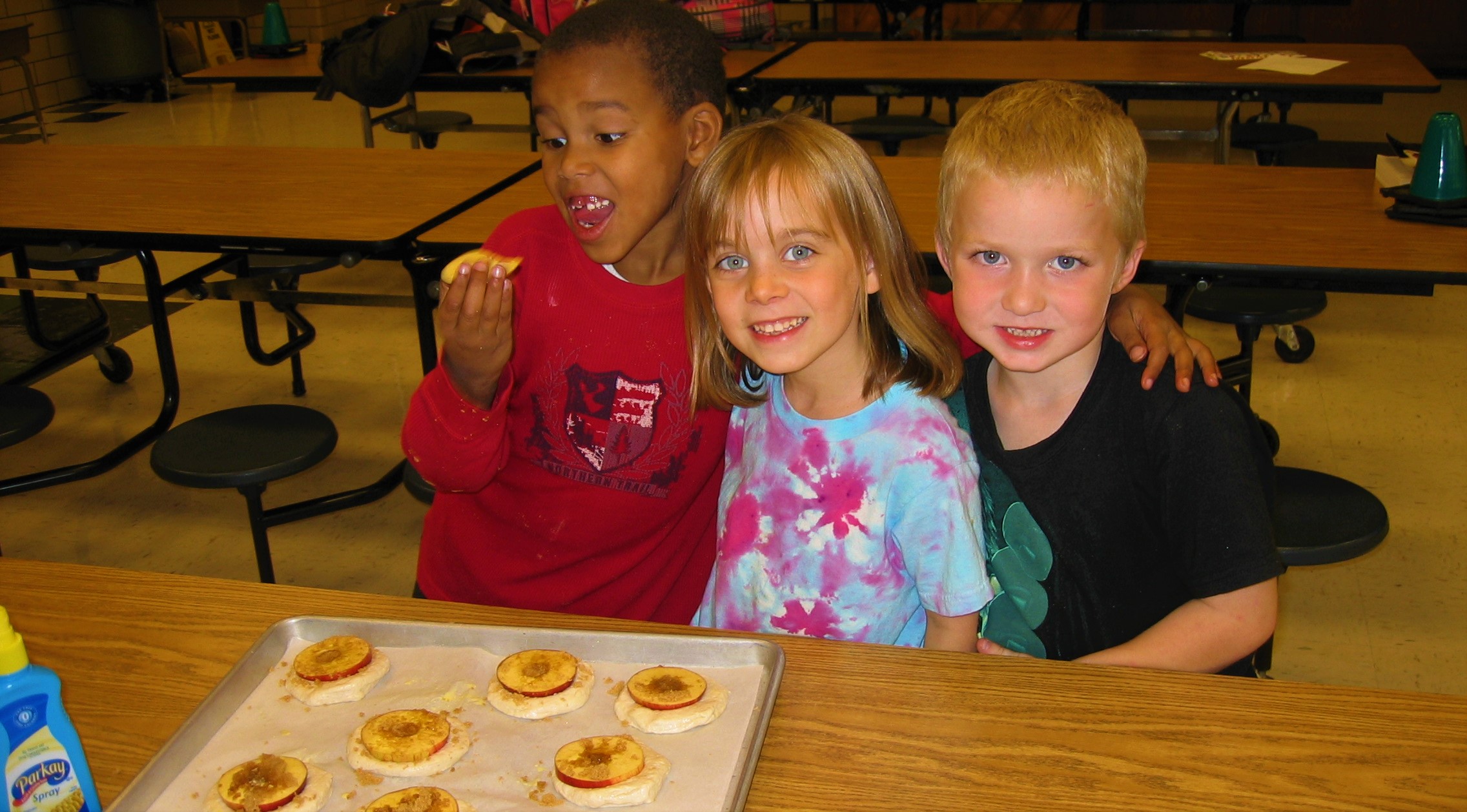
For many years, the whole farm to fork movement, and the increased demand for children to have access to more fresh fruits and vegetables, and healthier lifestyles, have propelled great strides in the National Farm to School movement. Collaborations between Virginia Cooperative Extension and folks working on various Farm to School efforts in Virginia are nothing new. For example, lots of work has been done with the Family Nutrition Program in public schools, such as programs like “Families, Food, and Fun”–a partnership with Harrisonburg City Schools and VCE–in which some of the food used for cooking on site highlighted locally sourced produce and meats. There are many other similar initiatives, too numerous to mention here.
More recently, the Fresh Produce Food Safety Team has been partnering with the Virginia Department of Education Farm to School program, working closely with F2S specialist Trista Grigsby. A series of eight regional meetings were held around the state in February and March, 2018. These meetings included an overview on food safety, procurement, and delivery/ distribution issues. A key part of these interactive meetings was to develop networks and establish a roadmap for next steps in the Virginia F2S movement. Participants ranged from school cafeteria and nutrition directors and school affiliated program leads, to recycling program directors, distributors, food hubs, farmers, non-profit groups, and other folks working with regional food systems.
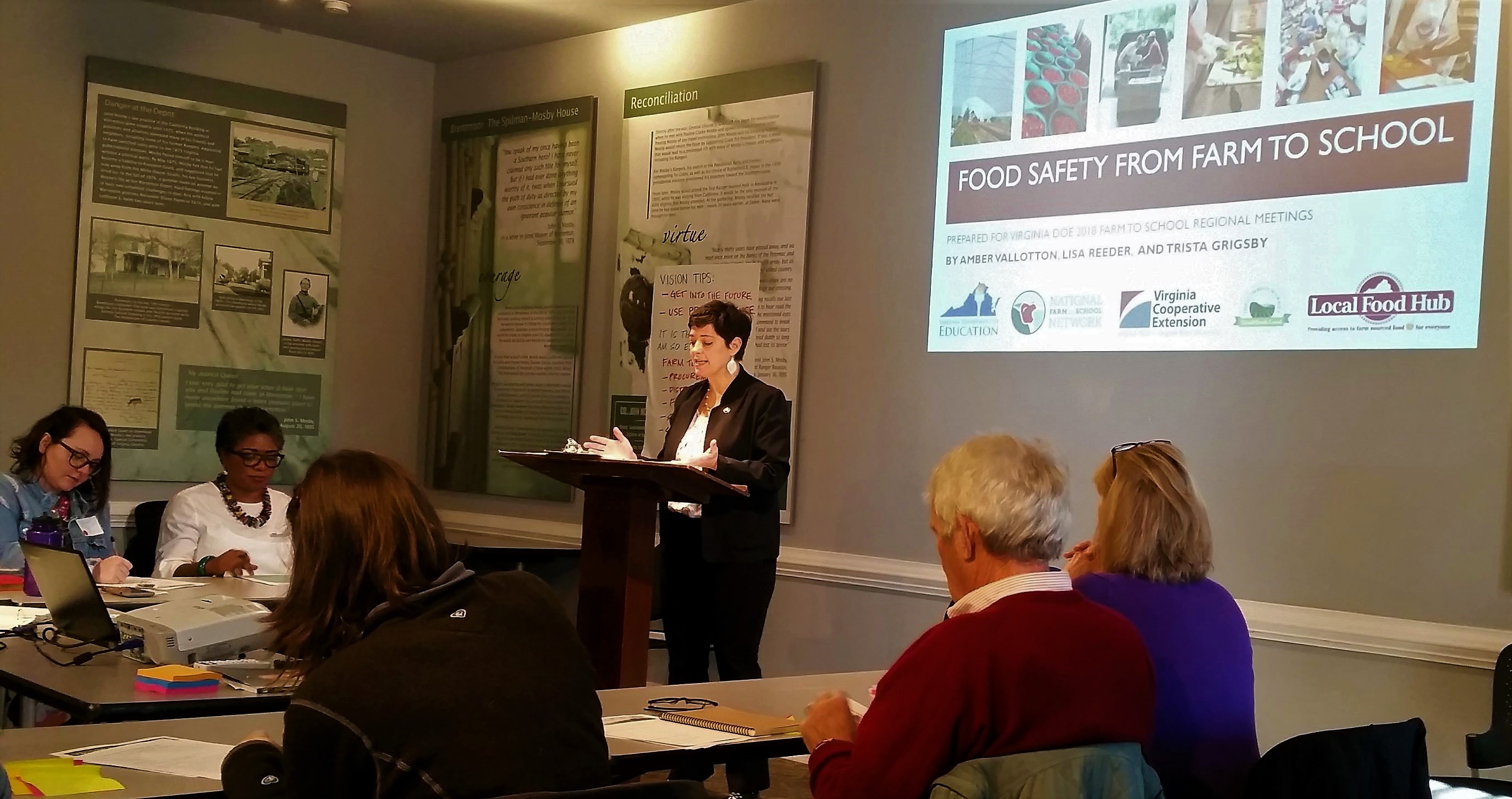
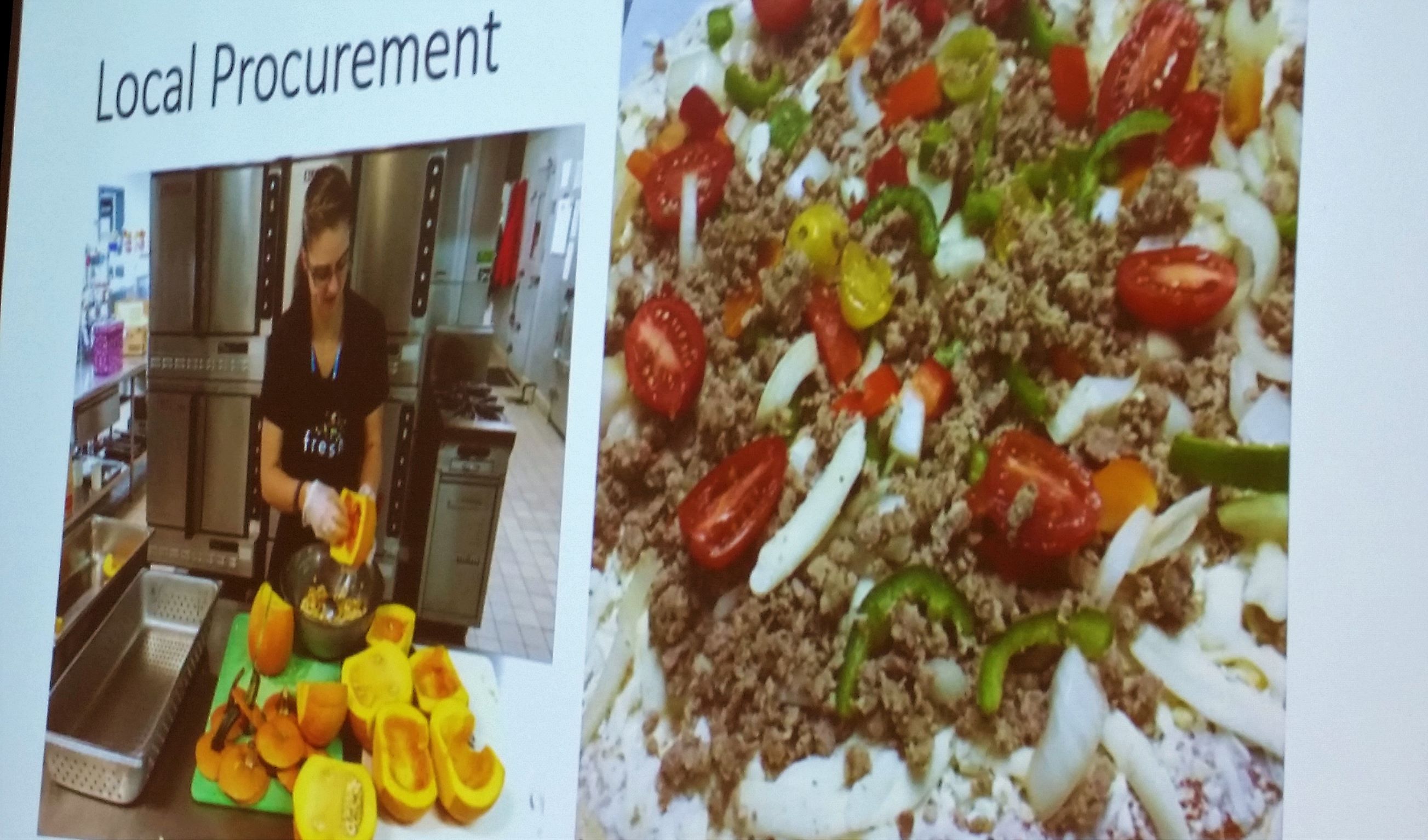
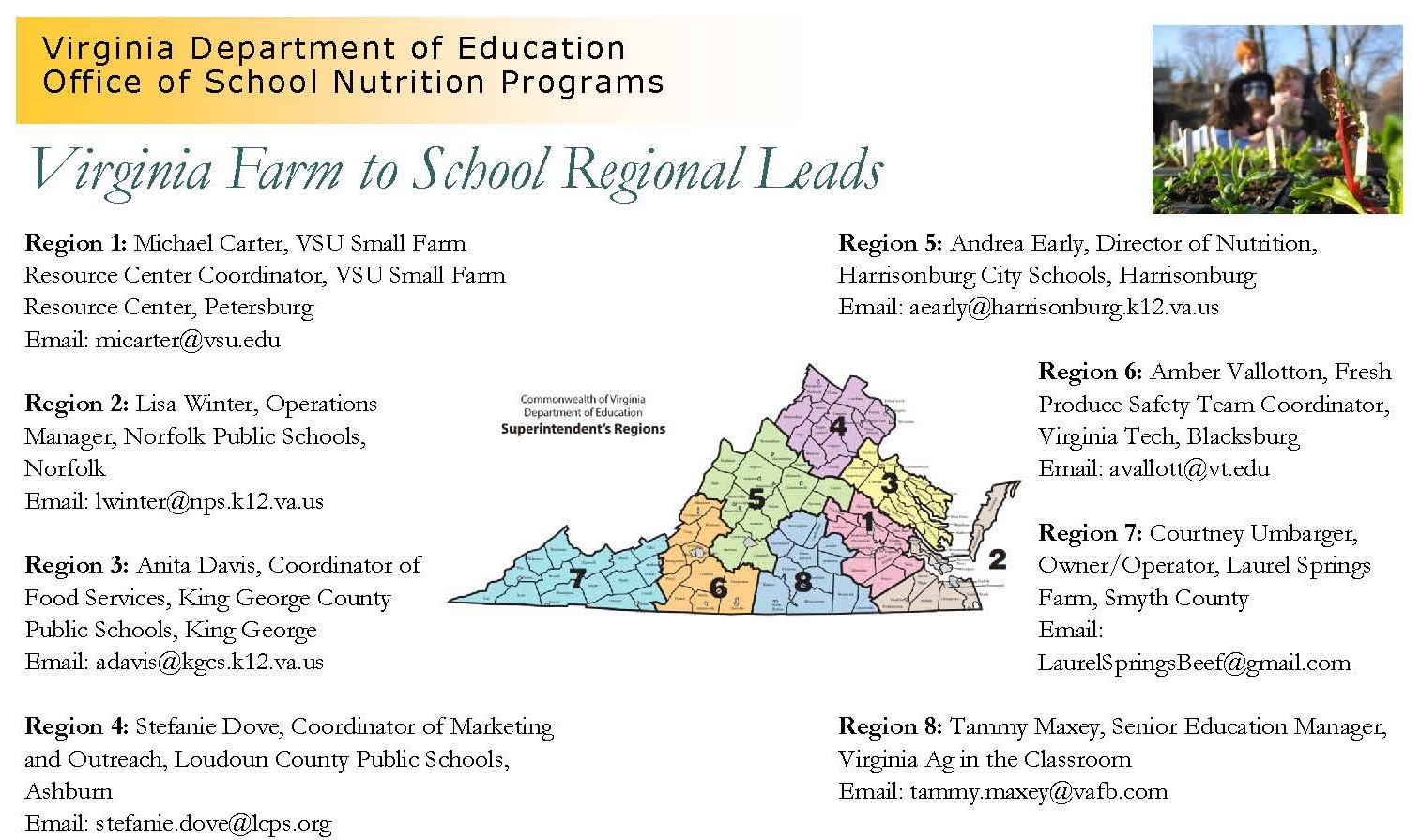
Another outcome of the regional meetings, was that relationships among participants, both old and new, were fostered. In fact, a direct outcome was a collaboration with FRESH and VCE-Fauquier. FRESH (Fauquier Reaches for Excellence in School Health) is a county-wide program to create a culture of health and wellness for students, staff and the community. The program is funded by a grant from the PATH Foundation, and focuses on creating positive and healthy changes in classrooms, cafeterias, after-school settings, and within the community.
In August, FRESH held a Farm to School Food Safety Training at Airlie Farm and Conference Center. The training consisted of plenary sessions, along with two break-outs for Fauquier County School Nutrition Department staff. The first breakout session, “Think Fresh and Fly”, gave hands-on experience thinking on the fly to incorporate last minute additions of locally grown, seasonal produce into the current menu cycle with less than a day’s notice. The second breakout session, “On farm food safety”, gave participants an opportunity to see the farm side of ‘farm to school’ in order to help them be better prepared for the sorts of things to look for when sourcing produce locally.
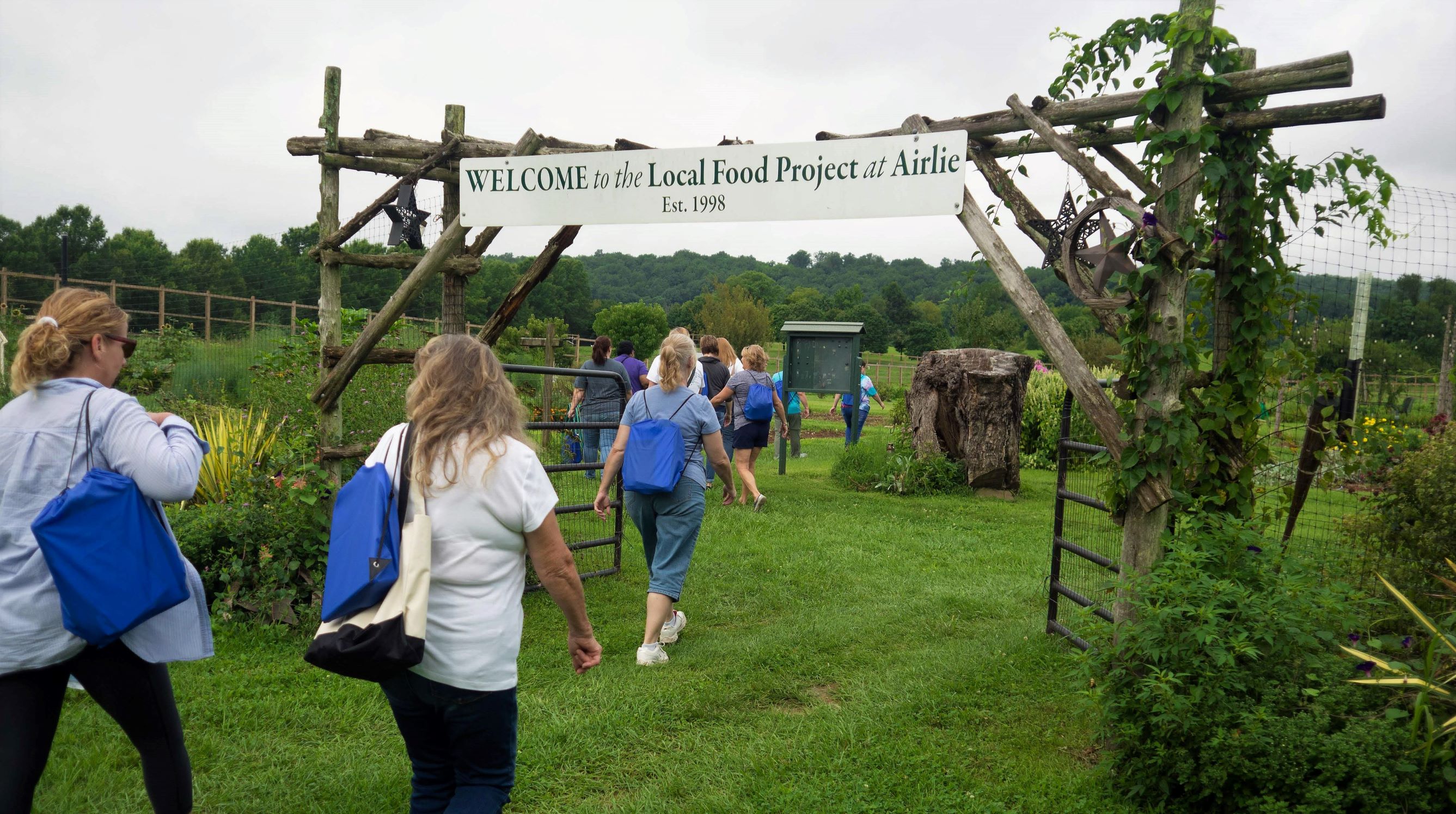
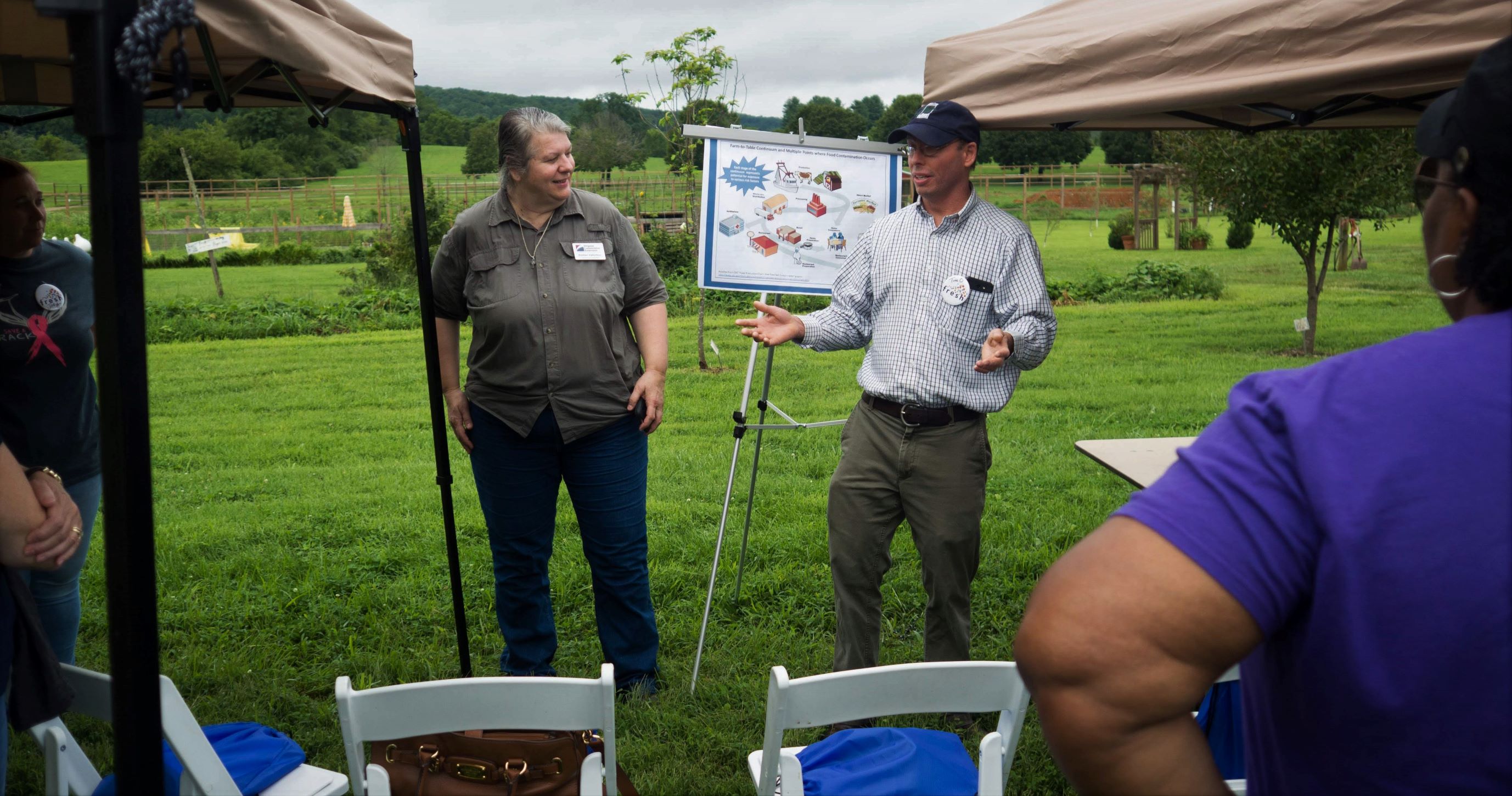

The training was a wonderful opportunity for staff to learn more about on-farm food safety risks, and how they can be more aware of possible contamination issues of produce they might purchase and handle. We look so forward to our continued collaboration with Farm to School efforts in Virginia. If you are interested in becoming involved and joining the Virginia Farm to School Network, complete this form.
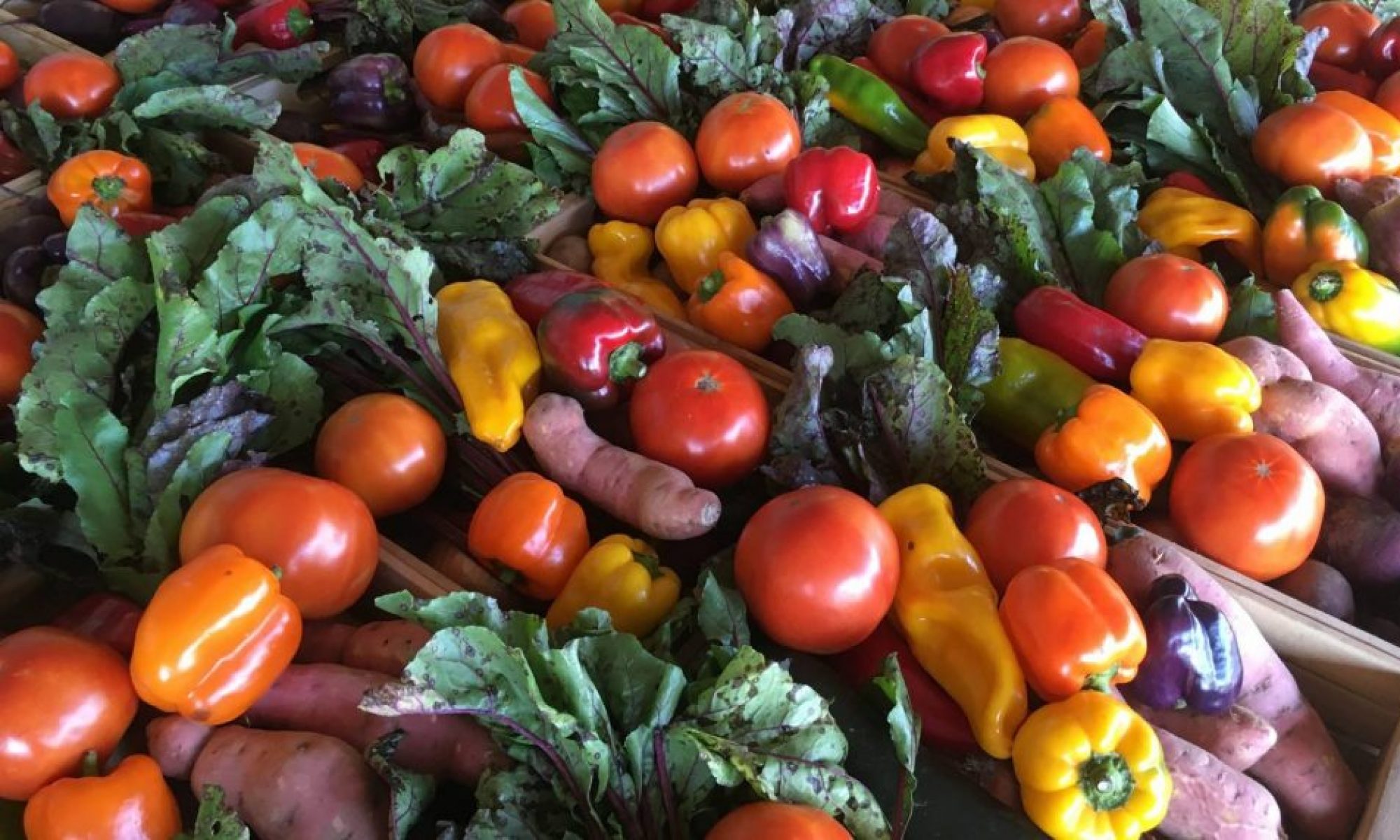
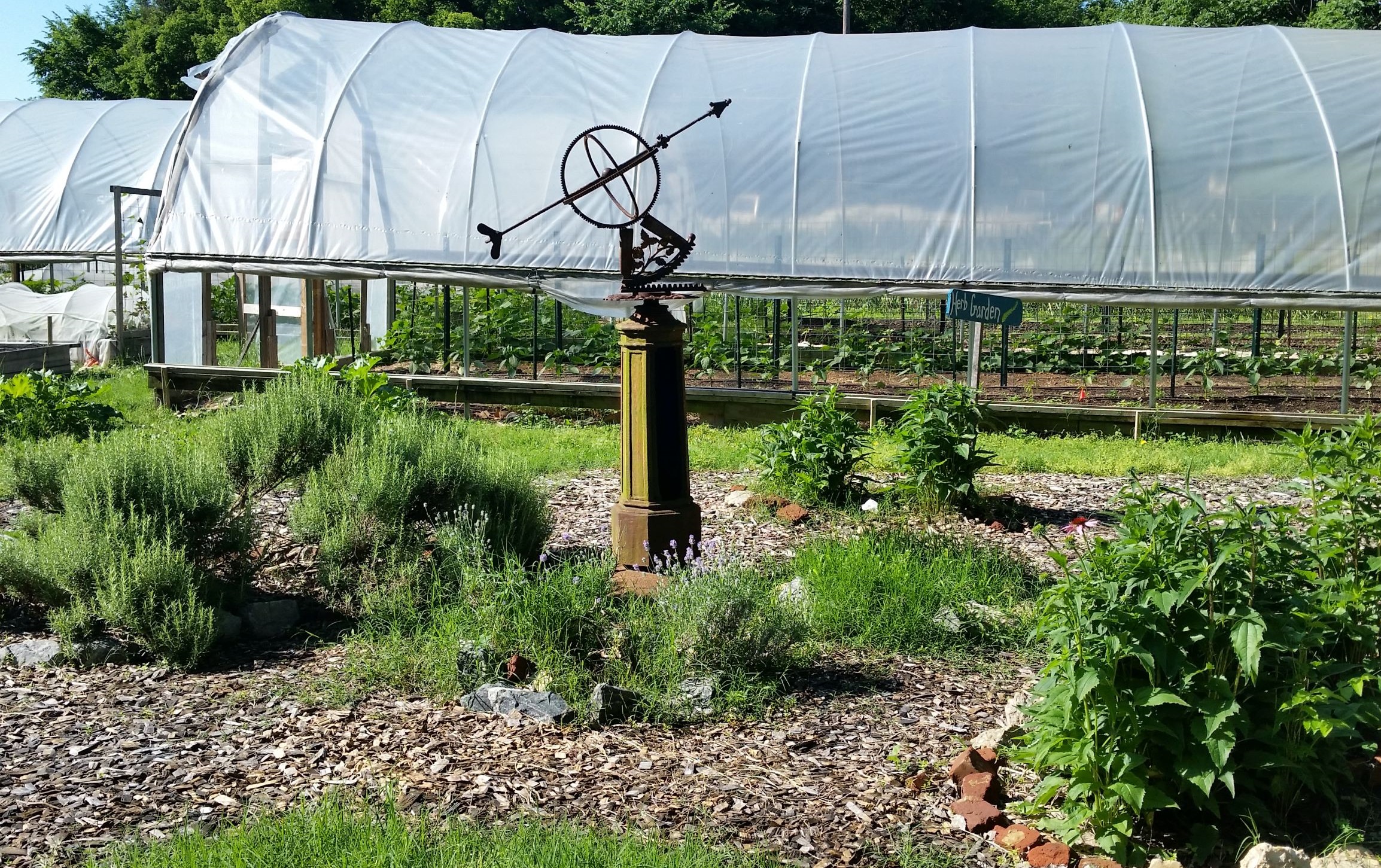
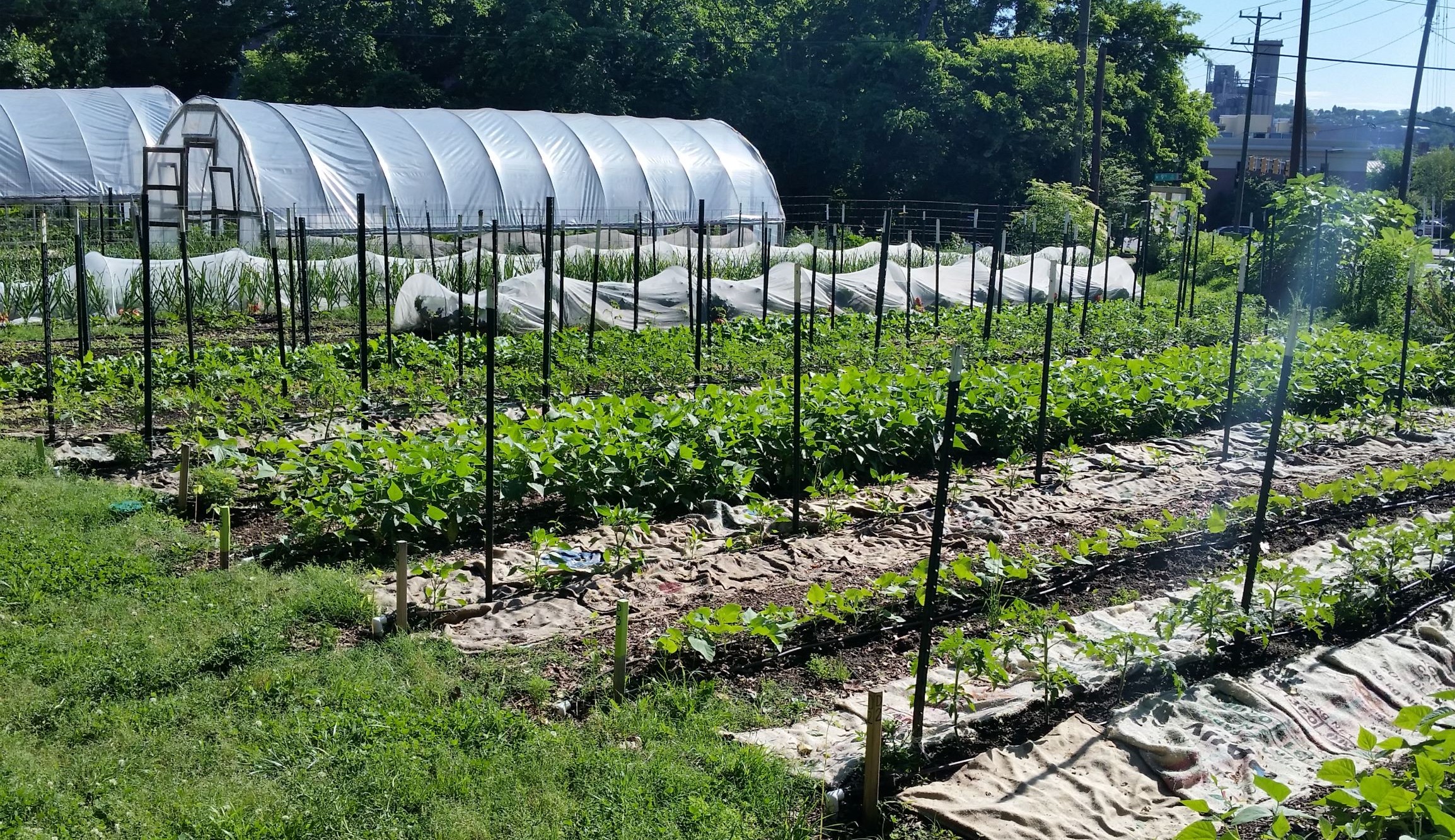
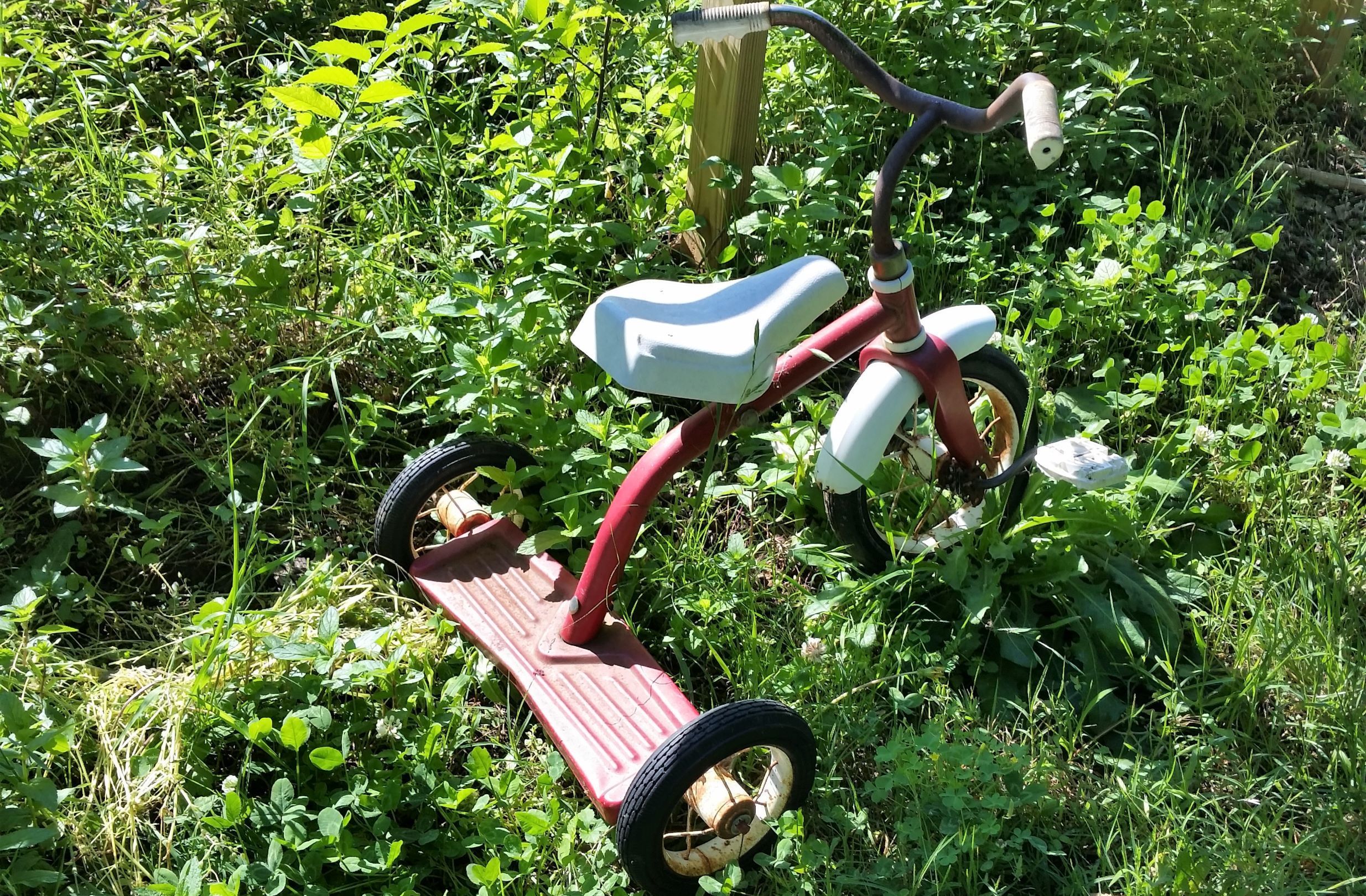
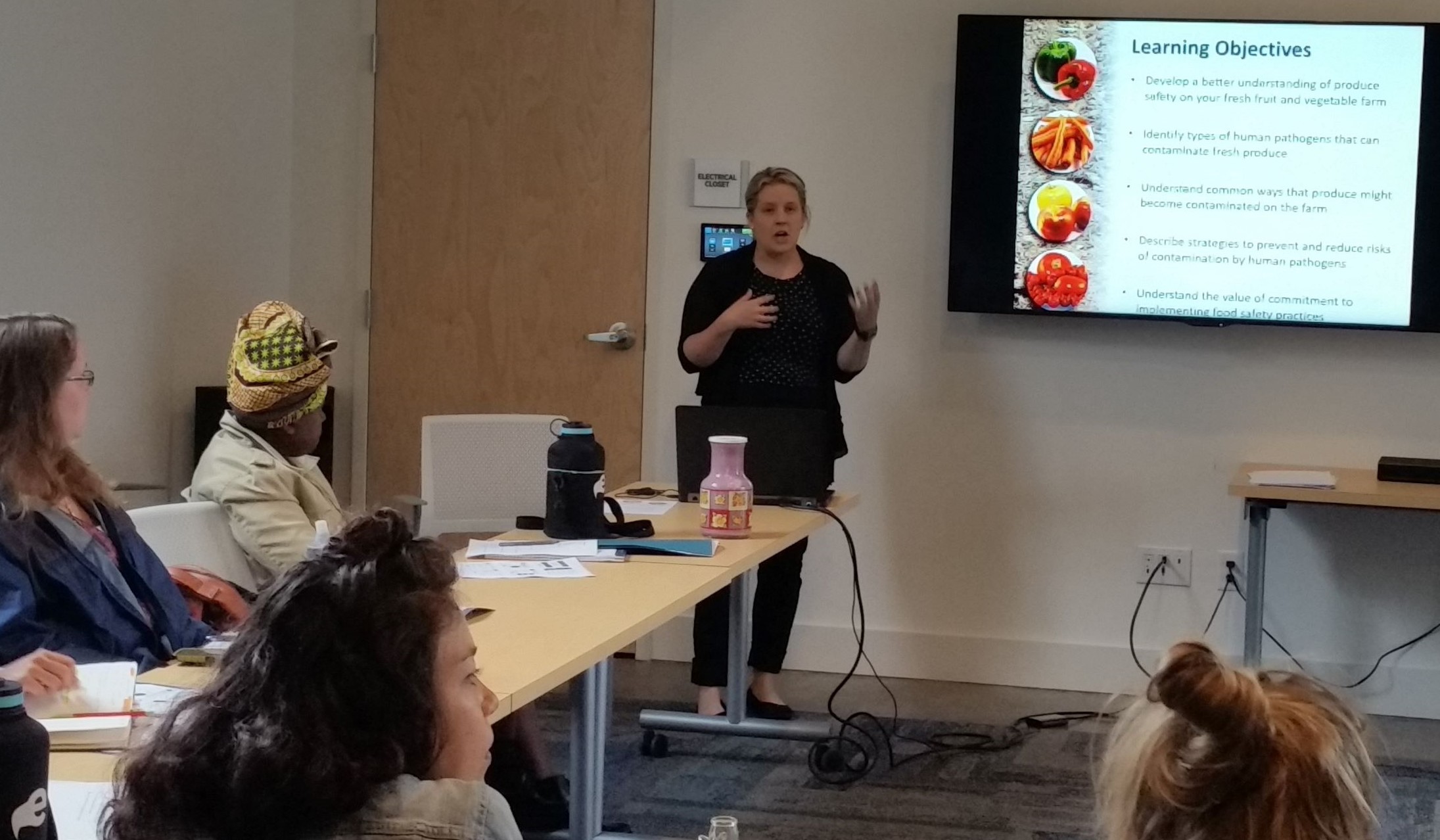
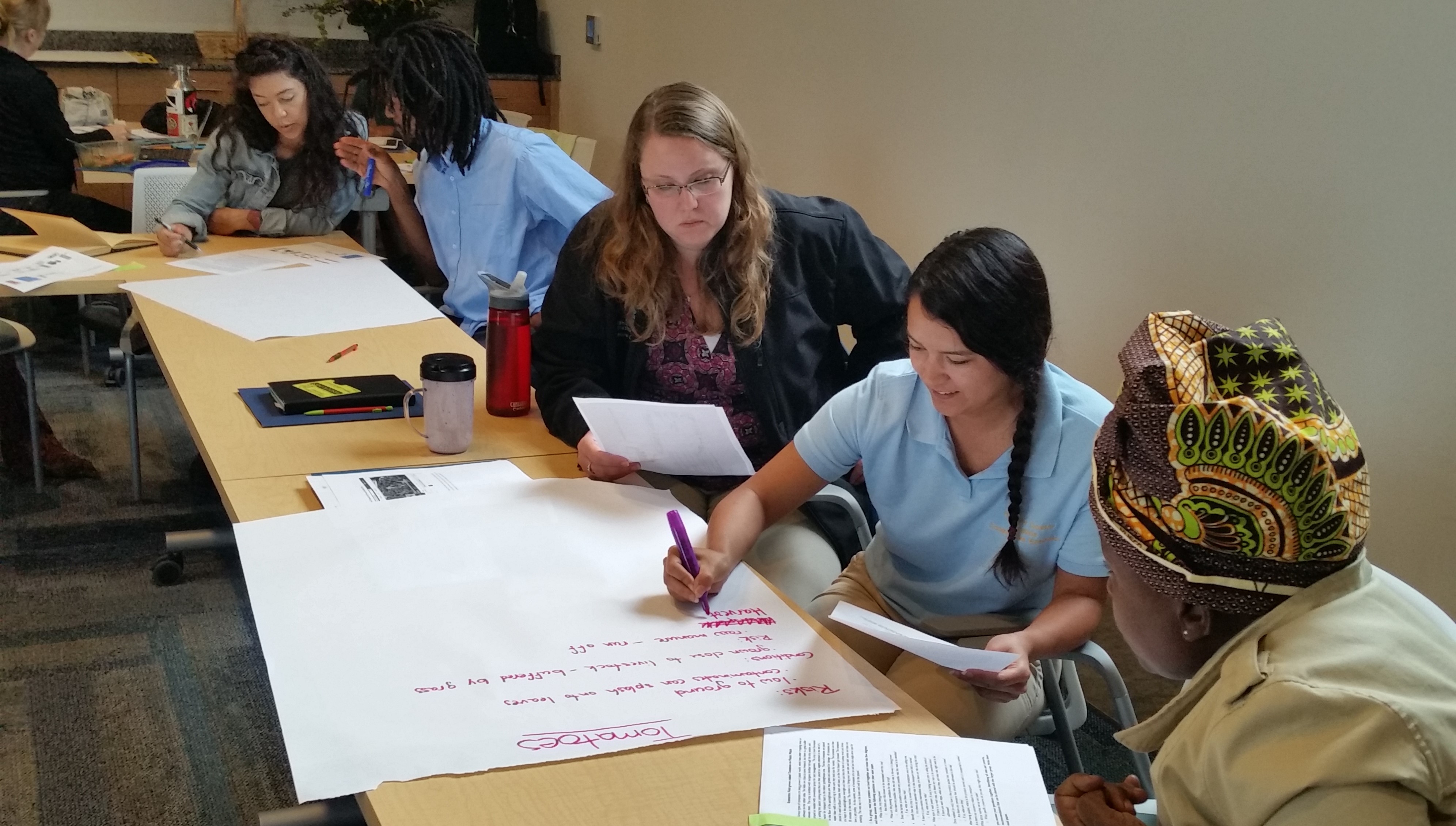
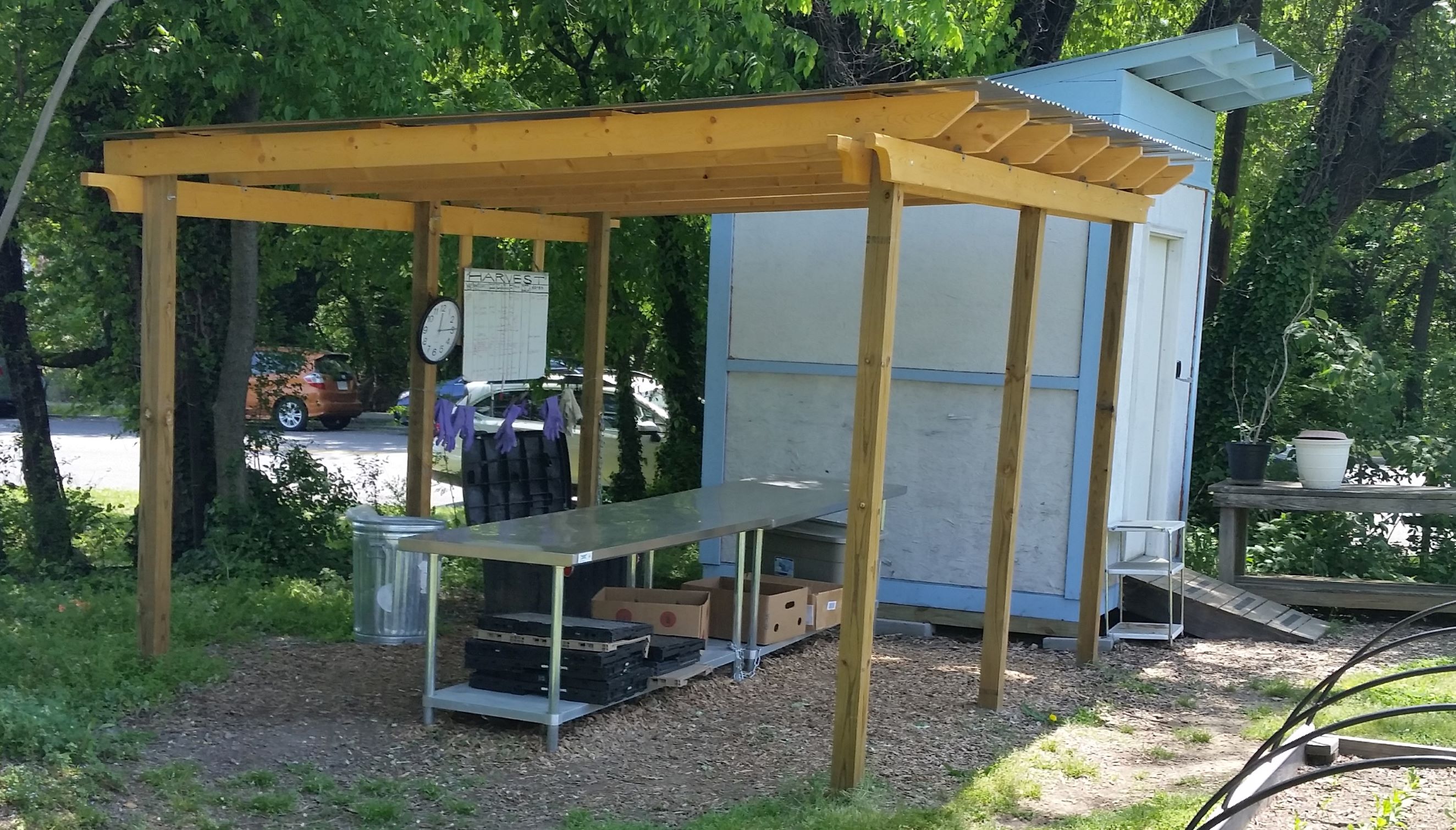
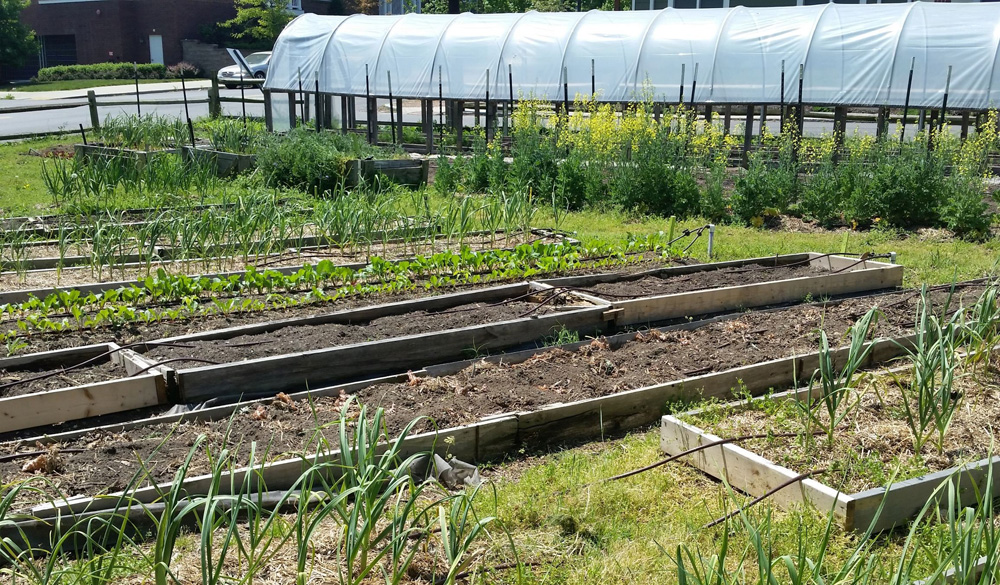
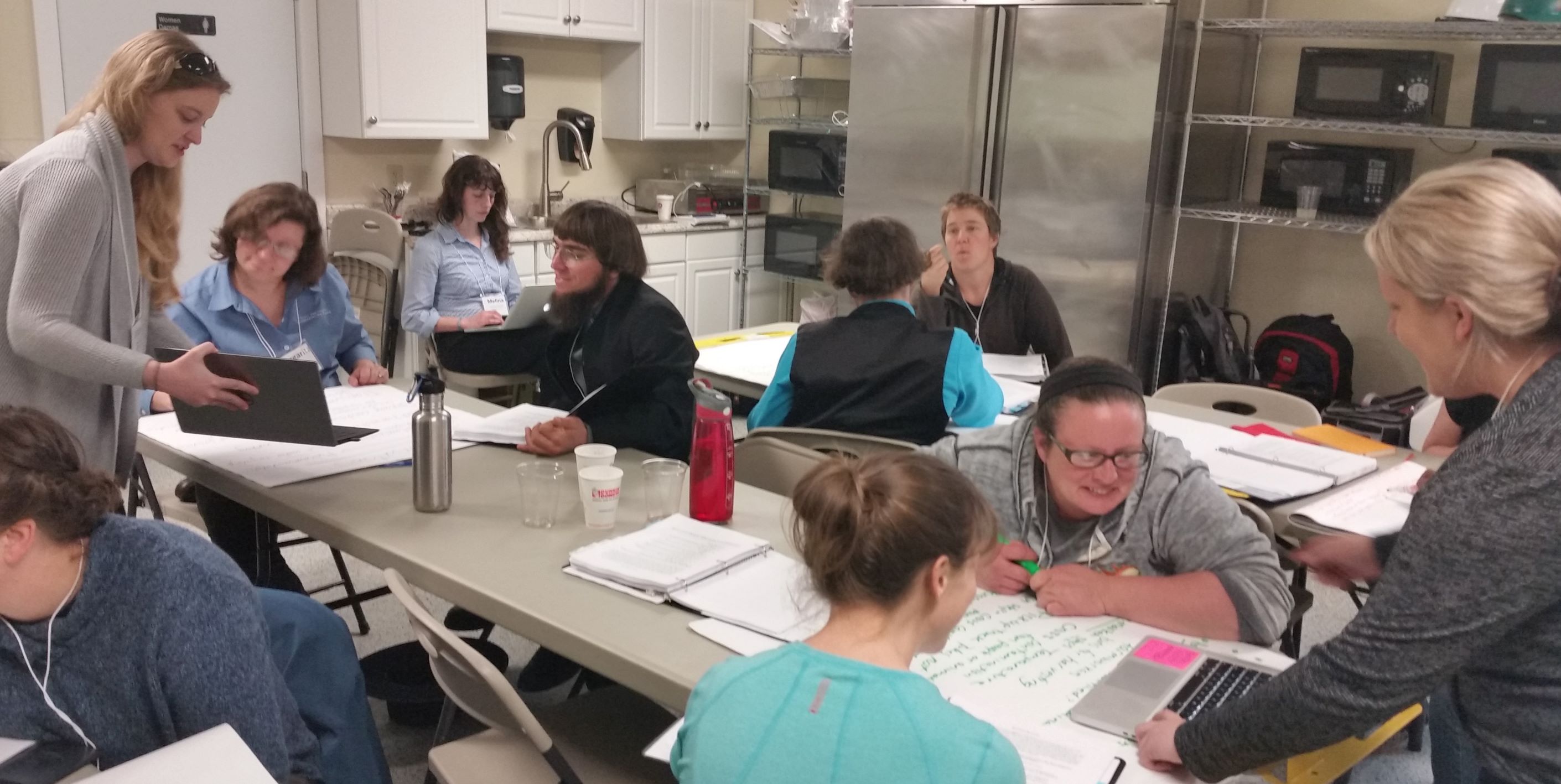
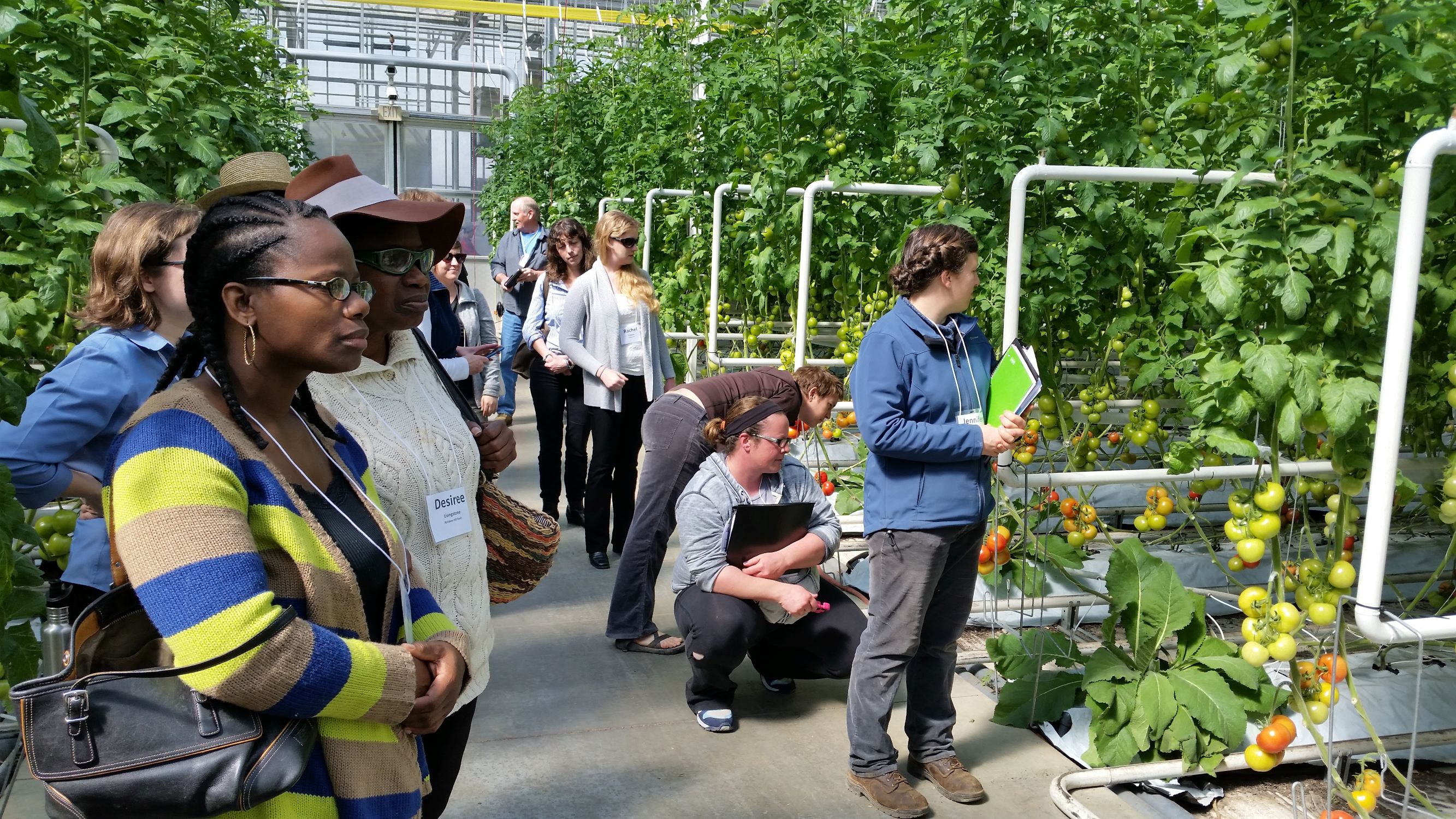
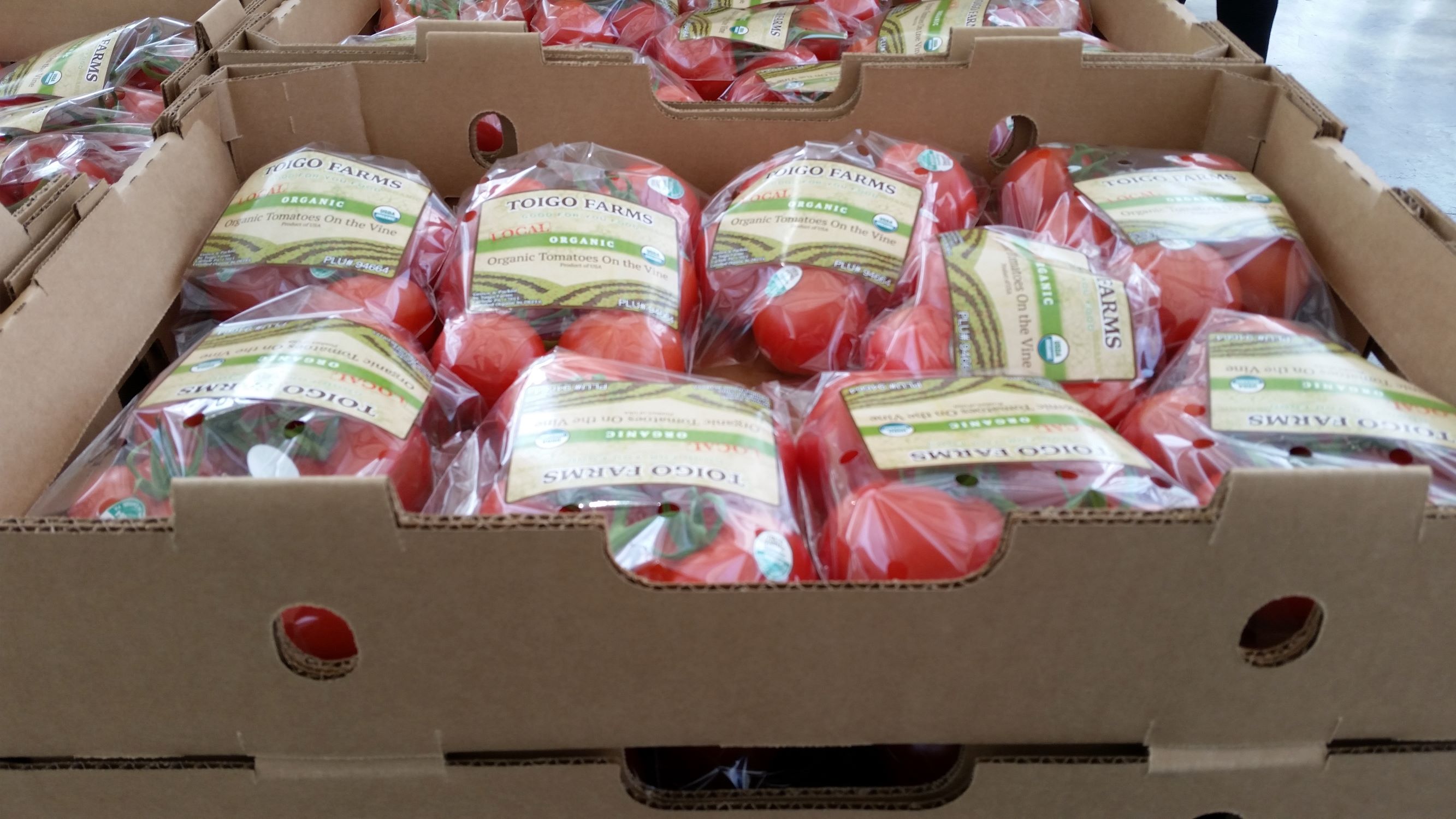
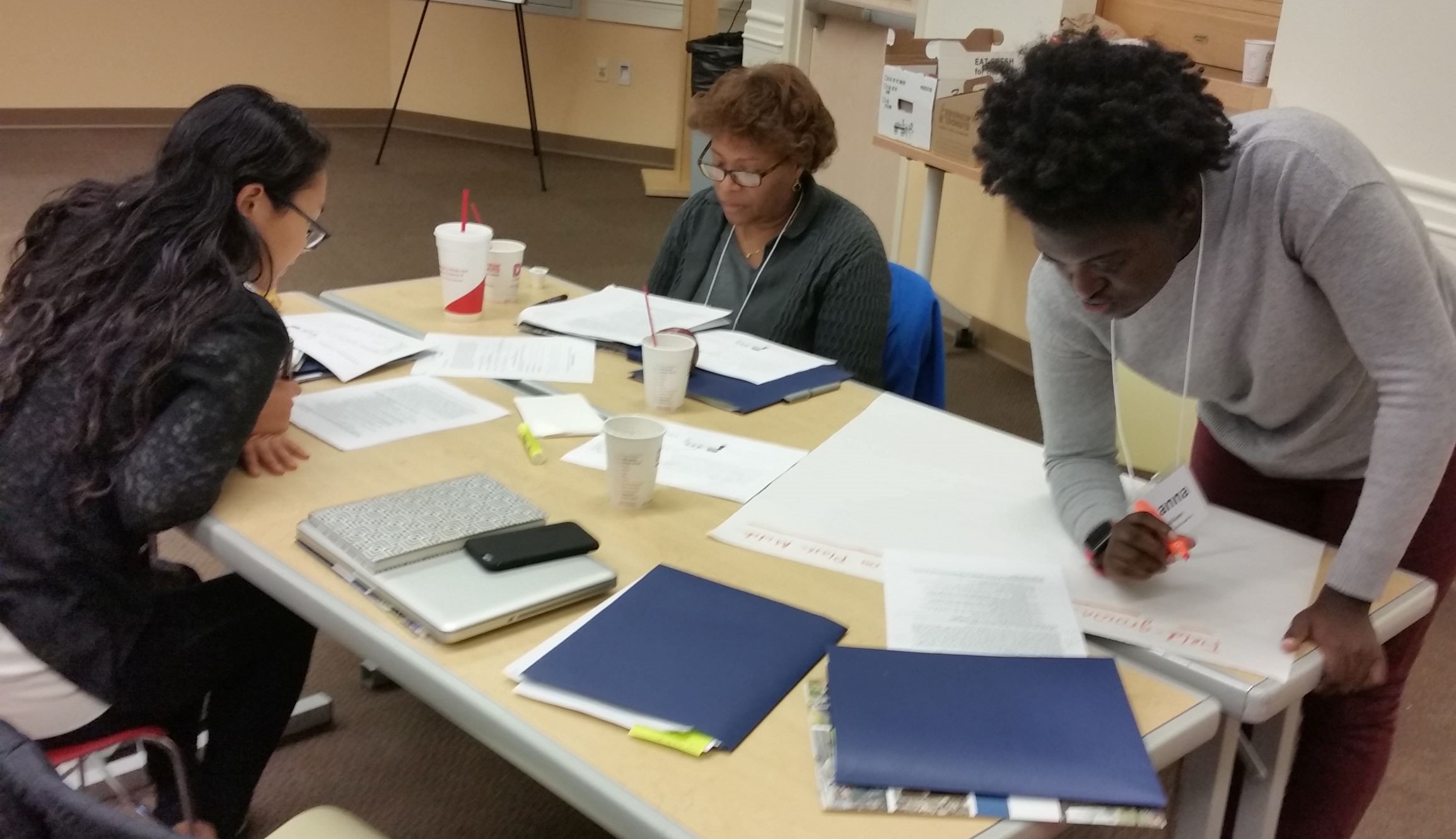
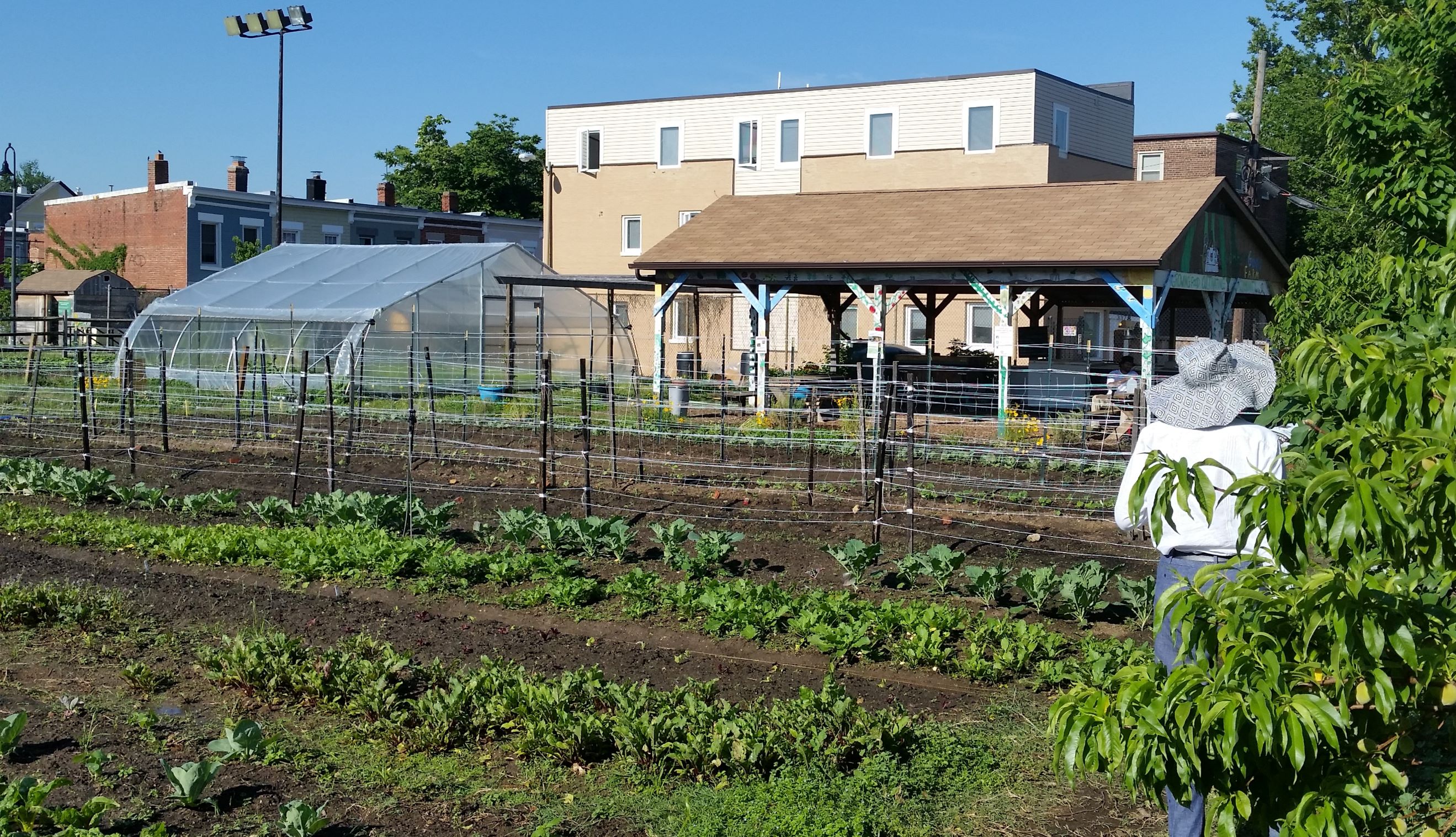
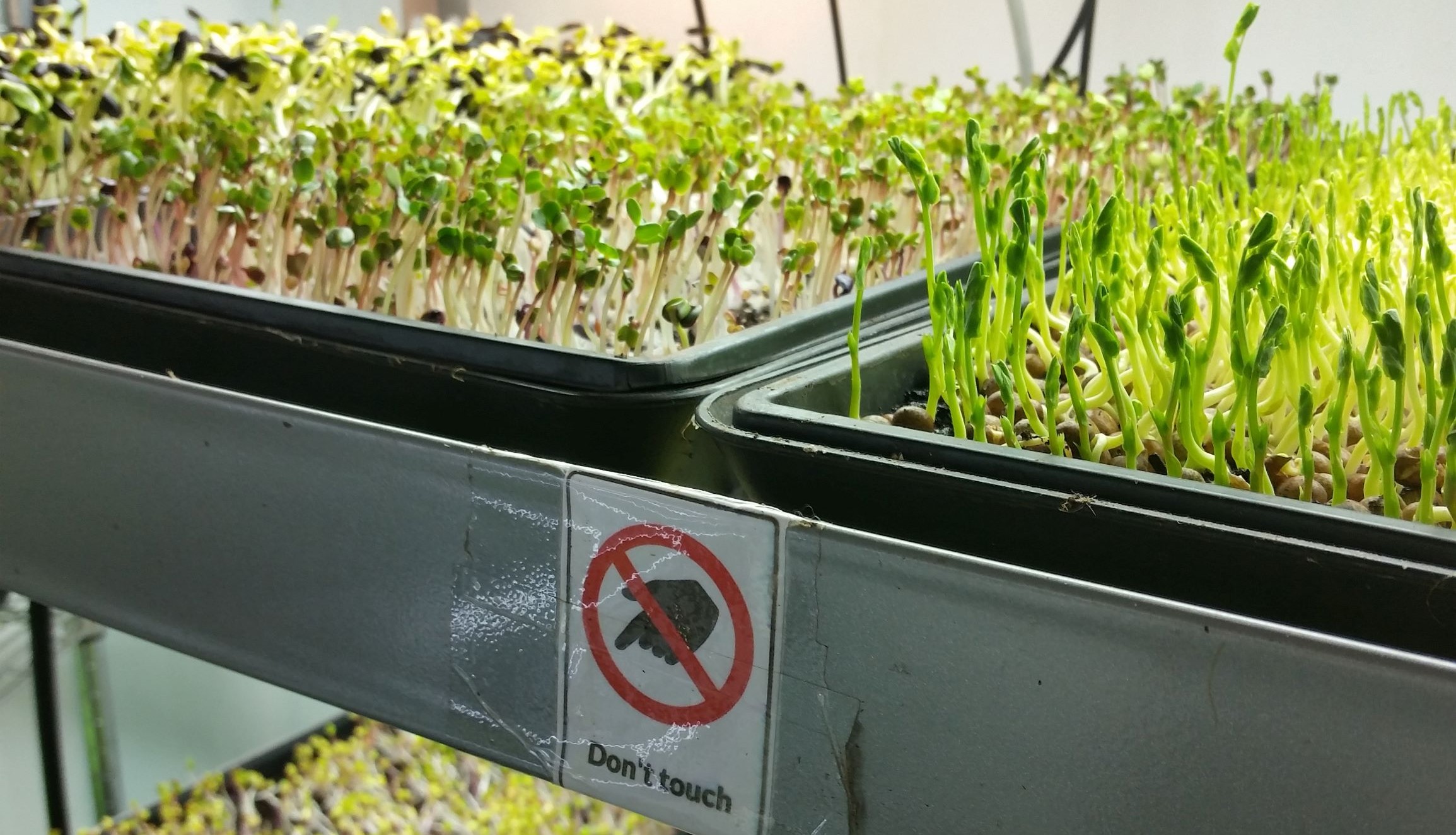
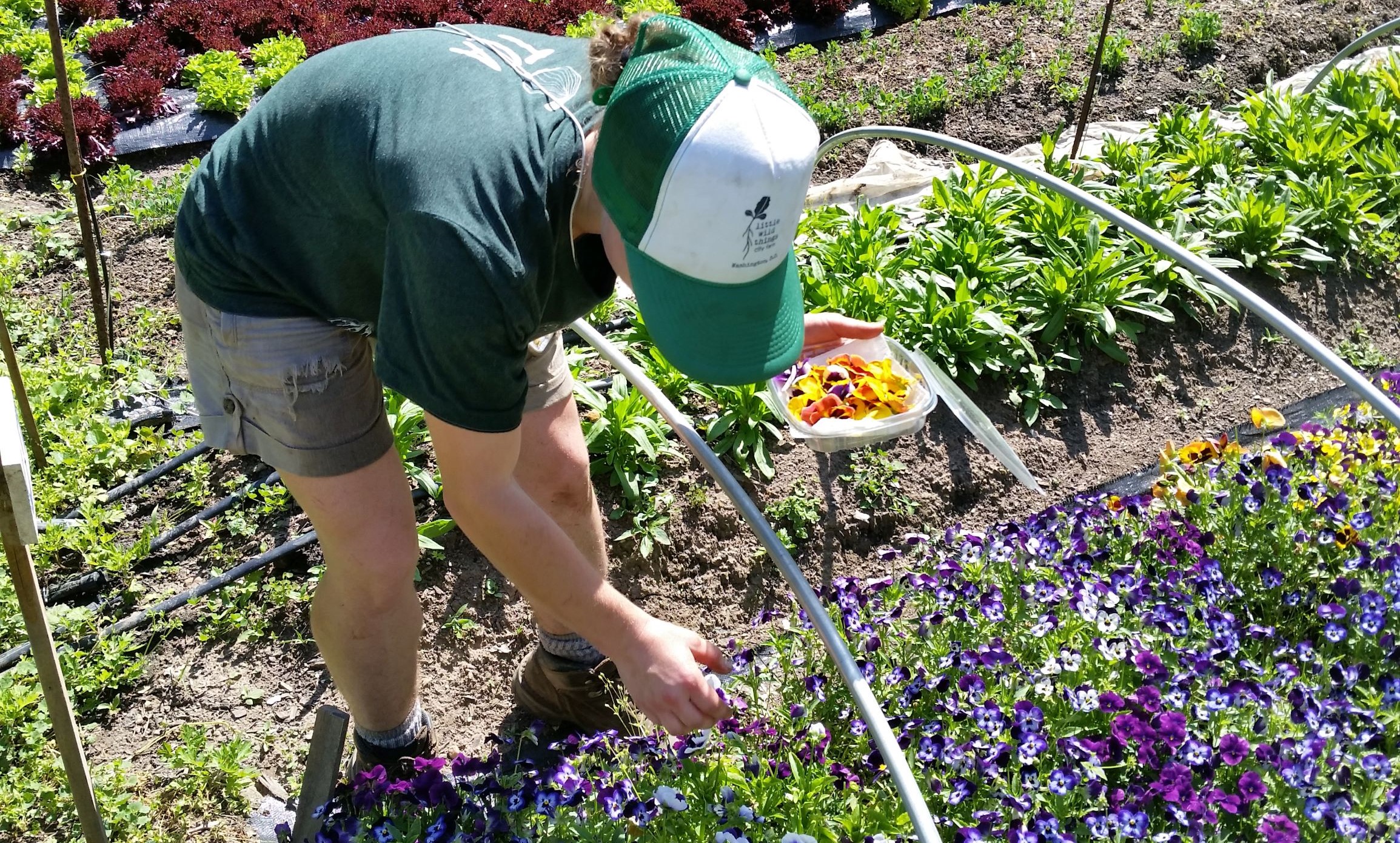
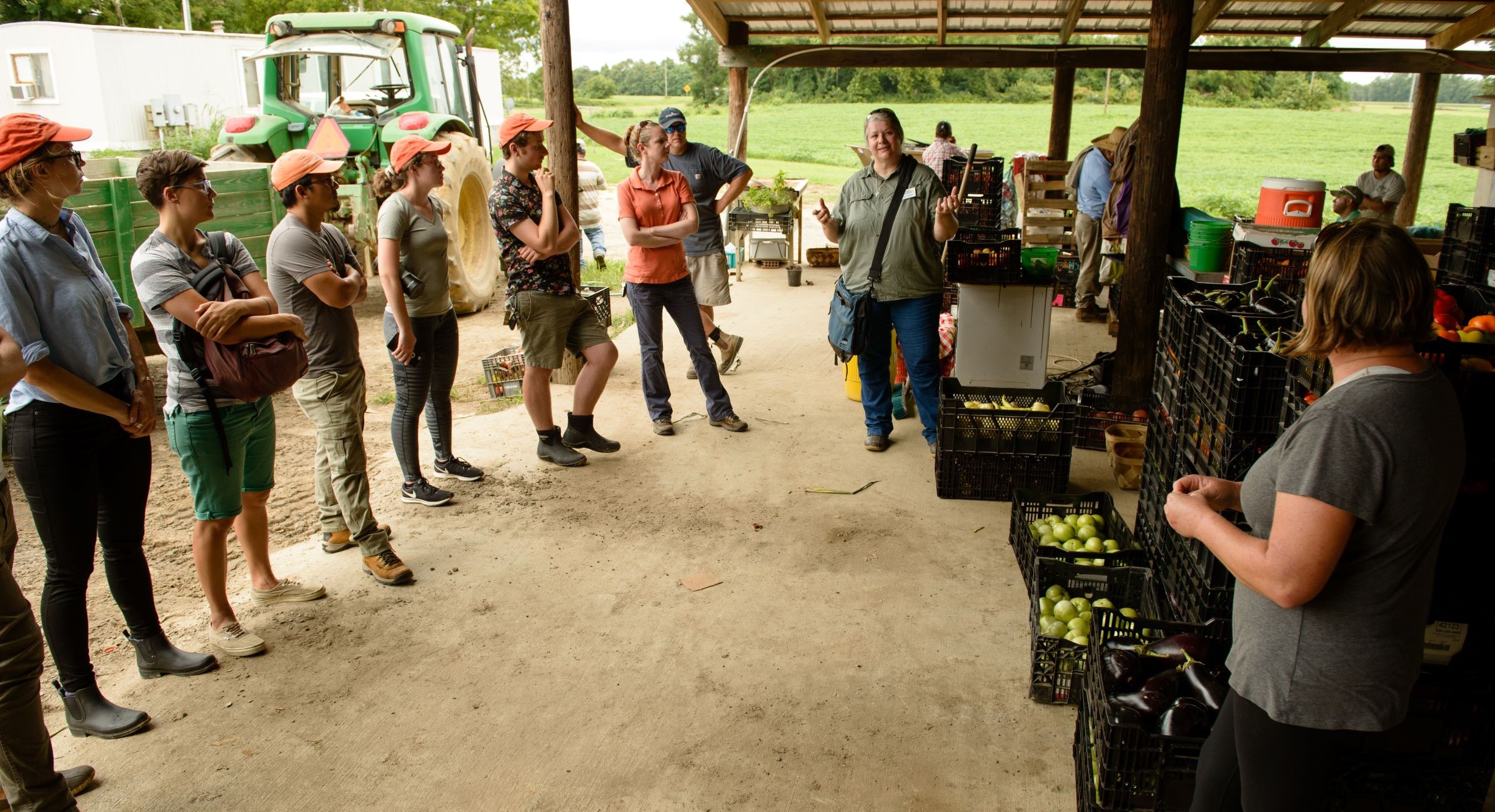
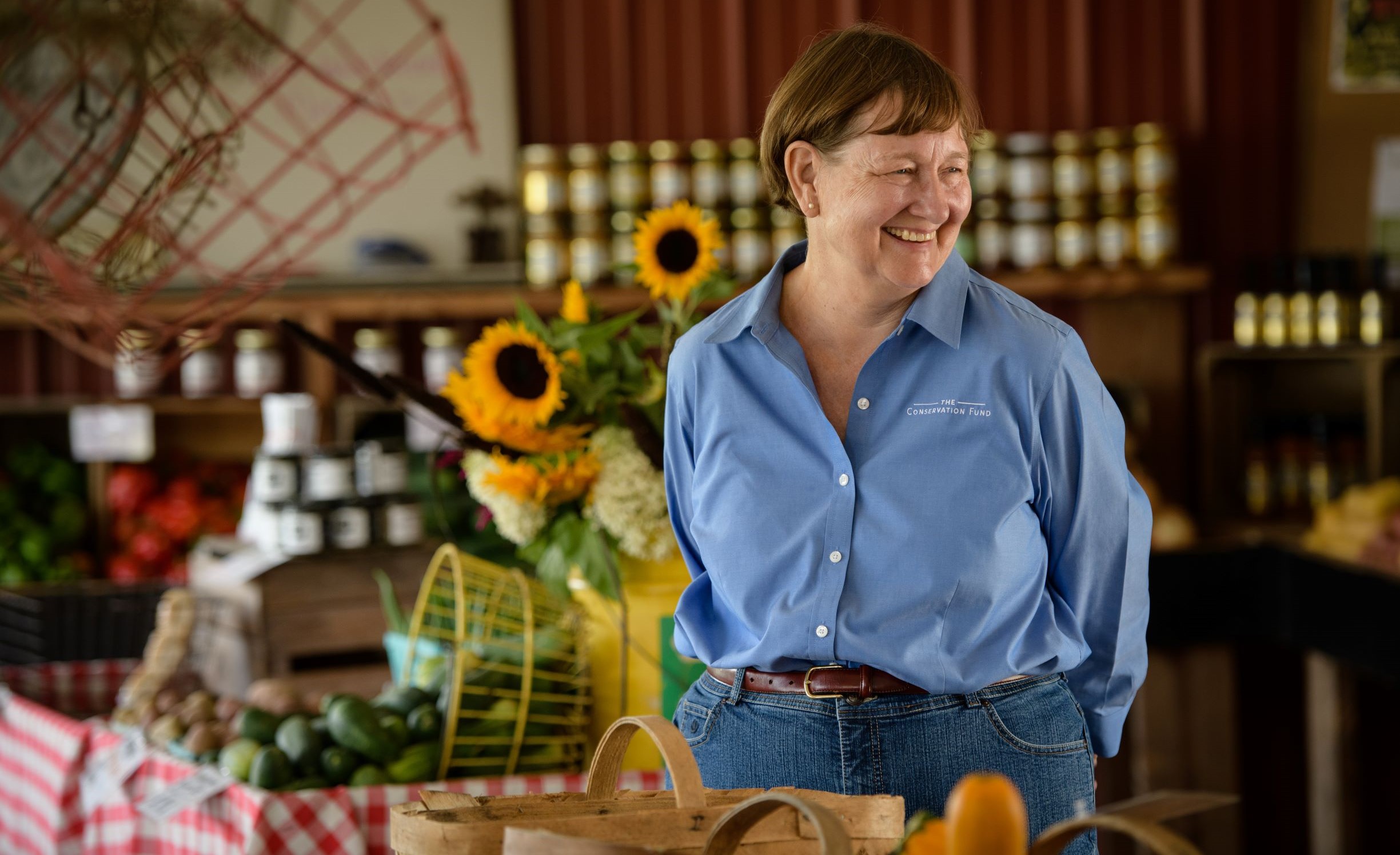
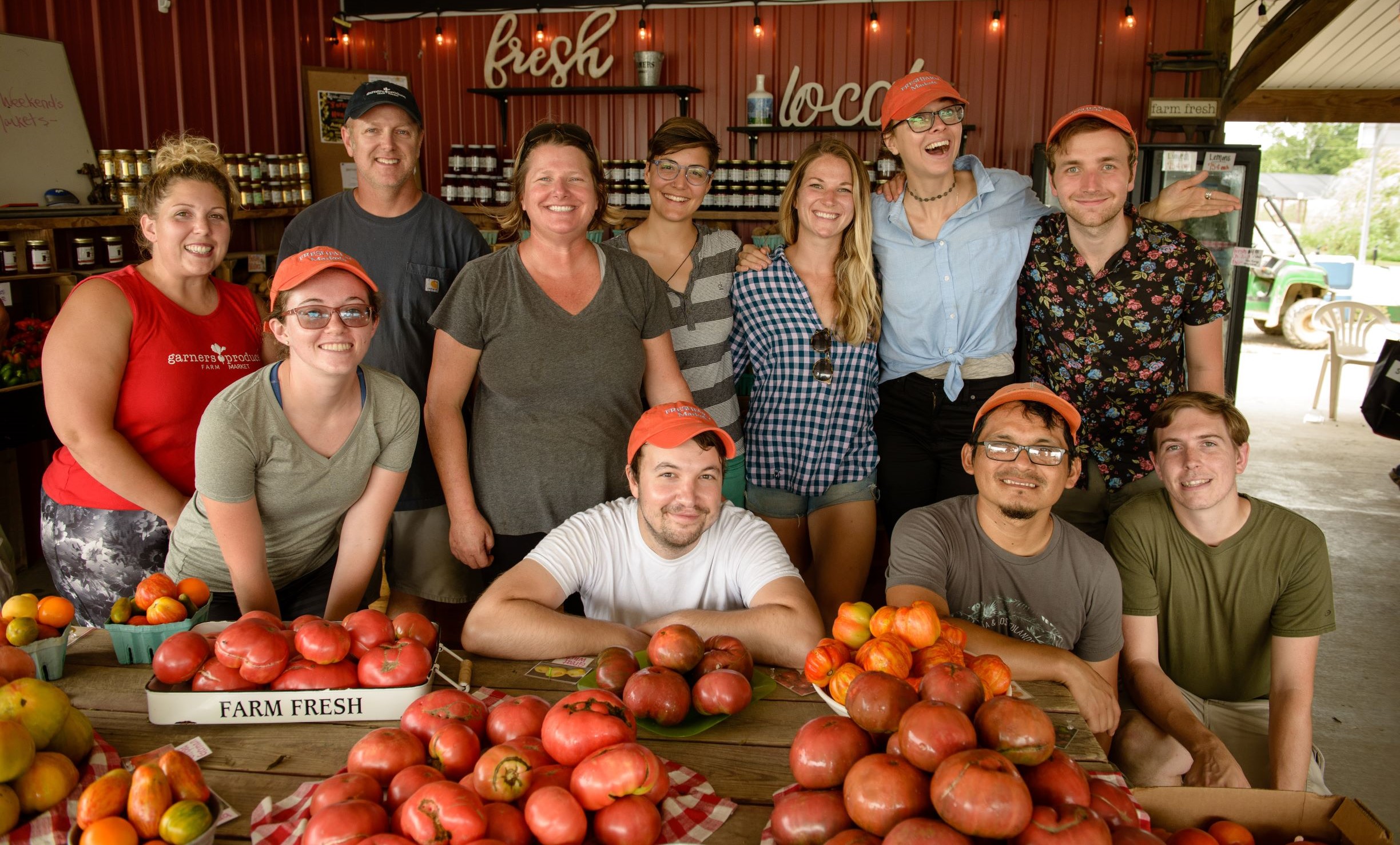
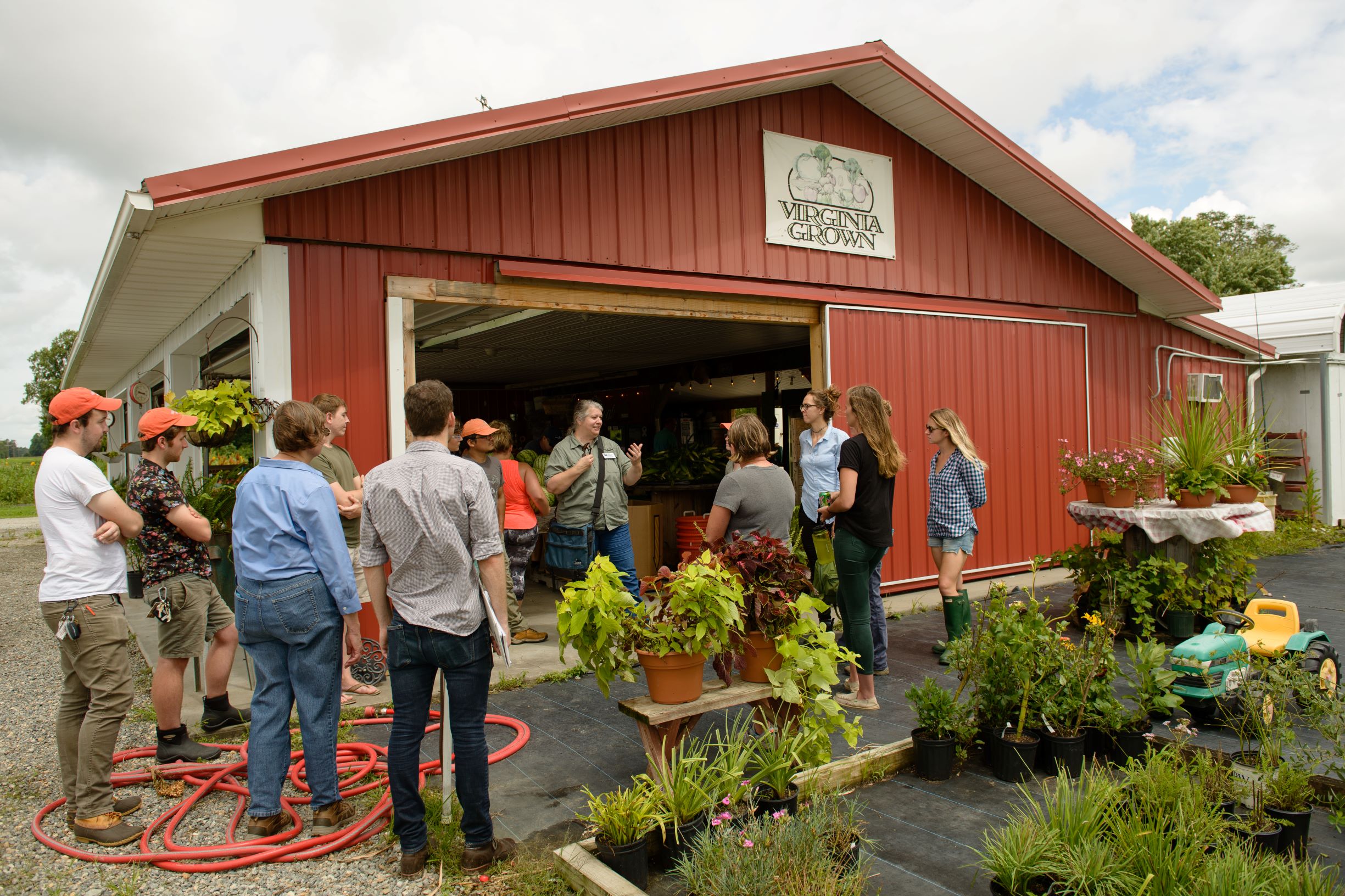
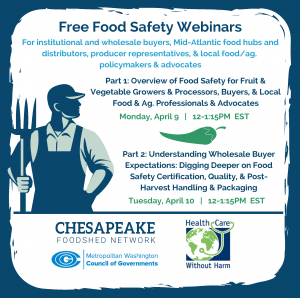 There’s a great deal of work happening in the Mid-Atlantic to get more locally grown and raised food onto store shelves, into school meals, hospital cafeterias, etc. Farmers, food hubs, distributors, state departments of agriculture, local food advocates, and many more, continue to address barriers, and to test solutions, for broadening wholesale market opportunities for local food. At the same time, food safety federal regulations are changing, requiring a higher level of time and investment on farms selling into wholesale market channels to comply with new requirements. Adding to the confusion, not all buyers have the same requirements.
There’s a great deal of work happening in the Mid-Atlantic to get more locally grown and raised food onto store shelves, into school meals, hospital cafeterias, etc. Farmers, food hubs, distributors, state departments of agriculture, local food advocates, and many more, continue to address barriers, and to test solutions, for broadening wholesale market opportunities for local food. At the same time, food safety federal regulations are changing, requiring a higher level of time and investment on farms selling into wholesale market channels to comply with new requirements. Adding to the confusion, not all buyers have the same requirements.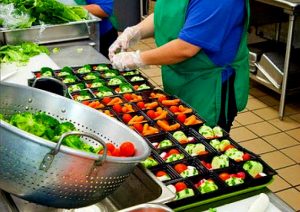 A growing number of schools are gradually transitioning from pre-made foods to more fresh, scratch cooked options. Given the emphasis on fresh fruits and vegetables, there is an opportunity for local growers to gain greater access to public school systems. According to the Virginia Department of Education (VDOE), there are currently 1,822 K-12 schools in Virginia as of the 2017-2018 school year. The USDA has been encouraging school districts to use locally-produced foods in school meals and to use “farm-to-school” activities to spark students’ interest in trying new foods. In an article published by NPR, they mentioned that more than a third—36 percent—of U.S school districts reported serving local foods in the 2011-12 or 2012-13 school years. Buying local became more feasible with federal legislation that passed in 2008 as well as 2010, when the U.S. Department of Agriculture created the Farm to School program to get more healthful food in schools and link smaller U.S. farmers with a steady market of lunchrooms.
A growing number of schools are gradually transitioning from pre-made foods to more fresh, scratch cooked options. Given the emphasis on fresh fruits and vegetables, there is an opportunity for local growers to gain greater access to public school systems. According to the Virginia Department of Education (VDOE), there are currently 1,822 K-12 schools in Virginia as of the 2017-2018 school year. The USDA has been encouraging school districts to use locally-produced foods in school meals and to use “farm-to-school” activities to spark students’ interest in trying new foods. In an article published by NPR, they mentioned that more than a third—36 percent—of U.S school districts reported serving local foods in the 2011-12 or 2012-13 school years. Buying local became more feasible with federal legislation that passed in 2008 as well as 2010, when the U.S. Department of Agriculture created the Farm to School program to get more healthful food in schools and link smaller U.S. farmers with a steady market of lunchrooms.